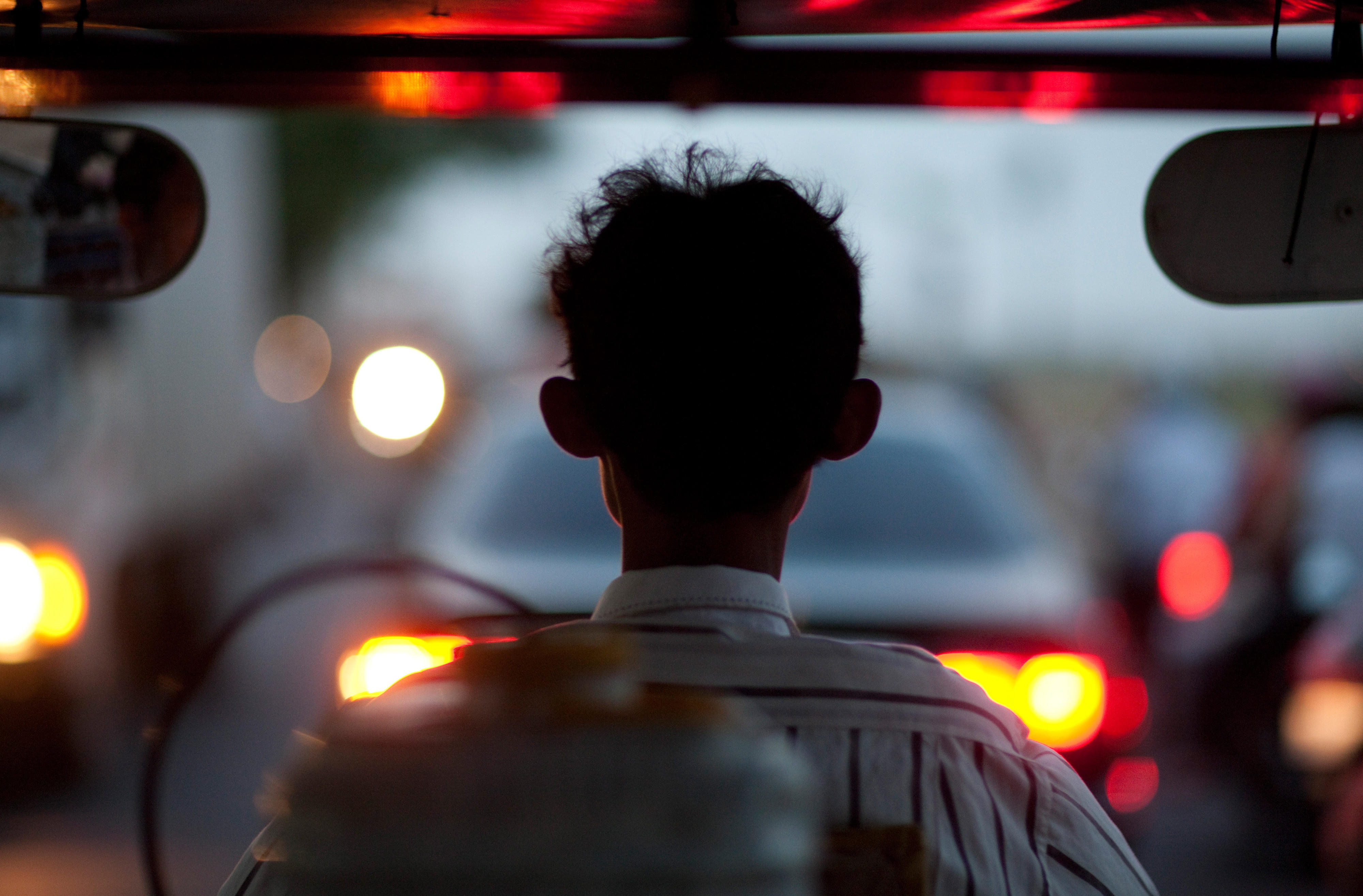Political situation Considerable governance shortcomings
A tuk tuk driver in Phnom Penh, Cambodia
After the opposition party, the Cambodia National Rescue Party (CNRP), received more than 40 per cent of the votes cast in the communal elections in June 2017, it was disbanded and its leaders were arrested or forced into exile. According to the official count, the governing CPP received 77 per cent of the votes cast in the parliamentary elections held in July 2018, winning all 125 seats in parliament.
The European Union described the election result as “not representative of the democratic will of the Cambodian electorate”. EU trade preferences in the areas of textiles, shoes, travel goods and sugar were revoked in 2020 in response to serious human rights violations and the oppression of political opposition.
Long-standing head of government hands over to his son
After the parliamentary elections in July 2023, the European Union again criticised the “restricted political and civic space, where the opposition, civil society and the media were unable to function effectively without hindrance”. CPP again won the elections by a huge margin. The most important opposition party – the Candlelight Party (CLP), which was formed after the CNRP had been disbanded – was not permitted to take part in the elections. Prior to the election, there had been another increase in repressive measures against politicians, media and non-governmental organisations (NGOs) that were critical of the government. Among other things, the last remaining independent news platform lost its licence in February 2023.
Shortly after the parliamentary elections, Prime Minister Hun Sen, who had ruled the country without interruption since 1985, handed over the office to his son Hun Manet, who was appointed head of government by King Norodom Sihamoni in August 2023. Other cabinet members, too, handed over their posts to their children. This means that Cambodia continues to be ruled by a small number of powerful families. At present, there are no indications that this political course might change.
Human rights and rule of law
In Cambodia, freedom of opinion, freedom of association and freedom of assembly are all highly restricted. Arbitrary arrests are a regular occurrence. The judiciary is not independent; the government is using it as a political instrument to protect its power against members of the opposition and human rights defenders. The work of non-governmental organisations dealing with environmental protection, human rights or land issues is subject to massive restrictions.
Although the constitution accords them equality, women suffer discrimination, especially regarding access to justice, land and the labour market. Violence against women is widespread.
The Cambodian government is making efforts to improve children's rights, gender equality, LGBTIQ+ rights and religious freedom, and to align its policies with the needs of those living in poverty.
Corruption
Corruption is widespread in Cambodia and is traditionally hardly questioned in Cambodian society. Whereas backhanders in everyday life are declining, large-scale corruption remains a problem. Legislation to combat corruption has only been in place since 2010. In the education and health sectors, in particular, bribes are a way to top up low salaries. Corruption also plays a major role when it comes to the awarding of land use rights.
In the last few years, Cambodia's ranking on the Corruption Perceptions Index (External link) (CPI) published by the non-governmental organisation Transparency International has improved slightly, but its rank is still very low (158th out of 180 countries in 2023).
As at: 18/01/2024
